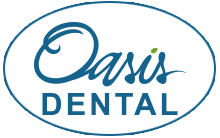 Spring Clean Your Teeth
Spring Clean Your Teeth
Spring Clean Your Teeth
Add a dental visit to this year's spring-cleaning list. A professional dental cleaning at least twice a year can improve your oral health, reports the Academy of General Dentistry (AGD), an organization of general dentists dedicated to continuing dental education.
"A prophylaxis, also known as a 'prophy' or professional dental cleaning, reinforces the at-home oral health regimen," says AGD spokesperson Anne Murray, DDS. "It is designed to preserve health, prevent the spread of disease and give the dentist an opportunity to locate other areas in the mouth that may need attention."
It is strongly recommended that a dentist or hygienist perform a dental cleaning every three to six months, says Dr. Murray. She discourages consumer use of over-the-counter tooth polishing instruments.
"People with healthy teeth and gums typically do not experience soreness after a cleaning," says Dr. Murray. Those with less-than-perfect oral hygiene habits may experience discomfort or heightened sensitivity during a dental cleaning. The dentist can use a topical anesthetic before the cleaning to alleviate pain.
What is a dental cleaning?
Diagnostic services may include:
• Reviewing and updating medical history, including heart problems, cancer treatment, pregnancy, diabetes, joint replacement,
medications, surgeries or any other major changes in health history
• Blood pressure check
• Oral cancer examination and screening
• Evaluation of gum tissue
• Checking biting, chewing and swallowing patterns
• X-rays, examination of teeth to detect decay
• Treatment planning
• Referral to specialists for specific treatment
Preventive services may include:
• Removal of plaque and tartar
• Stain removal
• Fluoride application
• Sealants
• Polishing of fillings or crowns
Educational services may include:
• Tooth brushing and flossing instructions
• Nutritional counseling
• Recommendations for future treatment: when to return for following hygiene treatment, periodontal (gum) concerns, restorative options, etc.
• Evaluation of possible cosmetic enhancements
• Evaluation of self-care effectiveness
• Tobacco-cessation counseling

Original content of this reprinted with permission of the Academy of General Dentistry. © Copyright 2007-2009 by the Academy of General Dentistry. All rights reserved. Read the original article here.
